Population Affected- Brooklyn
Brooklyn leads in morbidity of heart diseases in comparison to the rest of New York and the United States in general. Whereas the prevalence of heart disease is 43.3% in Brooklyn, it is 39.1% in New York, and 28% in the U.S.
Recent data from also indicates that heart disease is the major cause of hospitalization and death in Brooklyn.
It is not clear why Brooklyn has a high prevalence rate of heart disease in comparison to New York and the entire country. However, one can attribute this disease to the usual risk factors embedded in an unhealthy lifestyle. Hence, the essence of evaluating if this project is viable to meet the formulated objectives.
Populations Affected:
- Whites;
- Blacks;
- Hispanics.
However, the Blacks are mainly affected by hypertensive heart disease and congestive heart disease. Mortality due to heart disease and stroke occurs between the ages of 35 and 64 within this racial group.
Whites are mainly affected by coronary heart disease and heart disease mainly takes a toll on them after 65 years.
The SUNY Downstate Medical Center (12) indicates that the Blacks have the highest burden of heart disease, followed by the Hispanics, and the Whites fall on third place.
- Despite the fact that heart disease affects individuals across the ages, it is deemed to be a major for individuals aged 65 years and above.
- Literature indicates that more women than men are affected by heart disease. However, the same may not hold true for Brooklyn.
- There is no literature that indicates than a certain gender is more predisposed than the other in Brooklyn; hence, one can only conclude that it affects both men and women in an equal proportion (The Brooklyn Hospital Center par. 1).
- Nonetheless, research is required to verify the statement above.
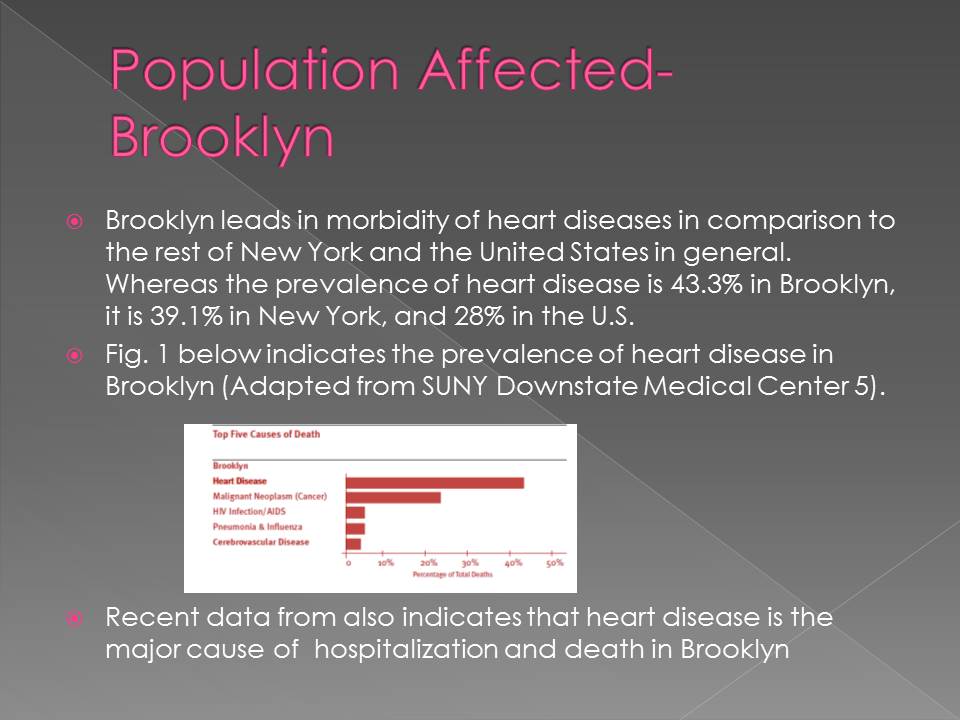
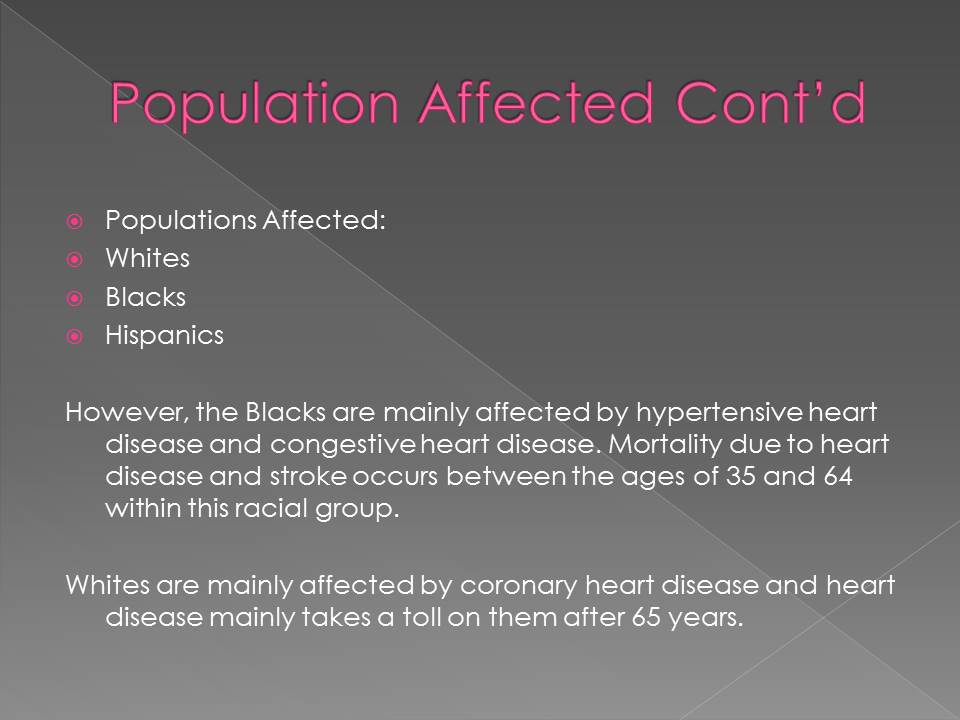
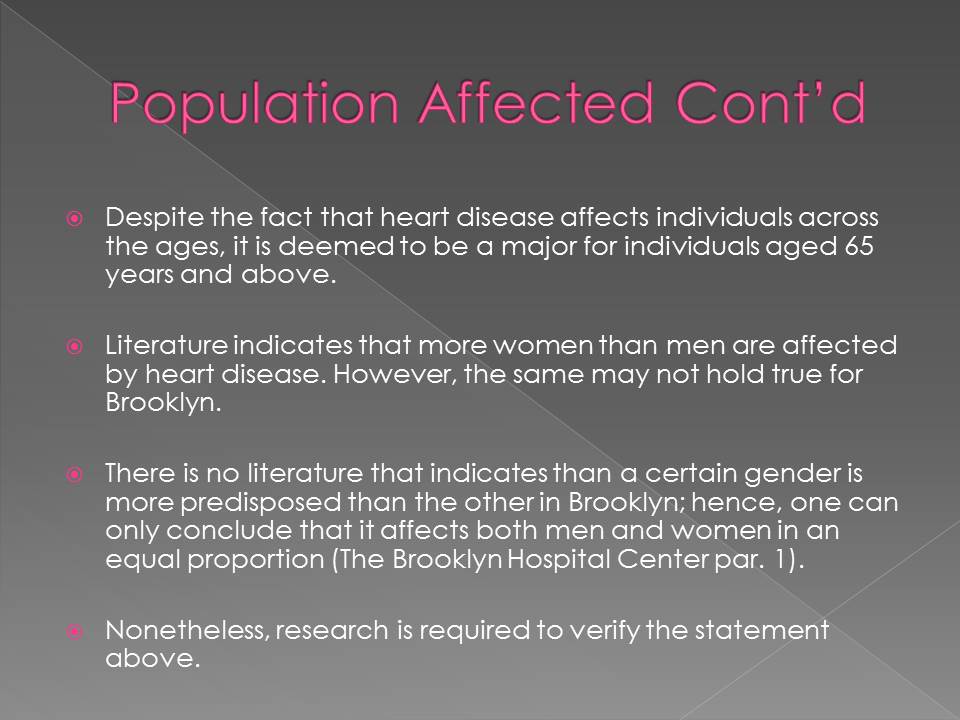
Evaluation
Identification of Stakeholders
The key stakeholders that will be involved in the evaluation process are the school children where the food garden have been prepared. Also, the principal, assistant principal, the recruited teachers and staff members as well as a custodian engineer .
These individuals will help to review the program’s goals and objectives (University of Washington par. 1).
Description of Program Design
Increasing the knowledge of school children on healthy food choices aimed to reduce heart diseases.
Enabling students to acquire the hands-on sills of planting vegetables as a means to facilitating self-independence as far as ownership of one’s health is concerned.
- Inputs: trainers, farm inputs.
- Outputs: Increased participation in school garden programs.
- Outcomes: Increased knowledge about different kinds of fruits and vegetables and their role in prevention of heart diseases.
Explore Program Reality
The evaluation process will assess plausible performance measures against the actual outputs and outcomes. Also, prevailing gaps that prevent the program from achieving expected outcomes are identified and mitigation measures implemented (Newcomer, Hatry, and Wholey 93).
Collect Evidence
Both qualitative and quantitative data will be collected to ensure that the program is valid and reliable. The data collected should be in alignment with the laid down objectives to affirm that the program seek to achieve the intended purpose.
Draw Conclusions
The data generated and the review of program’s input and outputs help to determine if the program is progressing on as intended or there . If a deviation from the main cause is realized, relevant and feasible adjustments are made .
Evaluation Focus and Intended Use
The evaluators will accurately determine the indicators to measure the performance of the program. In this case, the evaluators will review whether the program is viable enough and that the activities outlined will lead to achieving the intended outcomes. In addition, the evaluators will outline how the outcomes of the programs will be applied in real life settings.

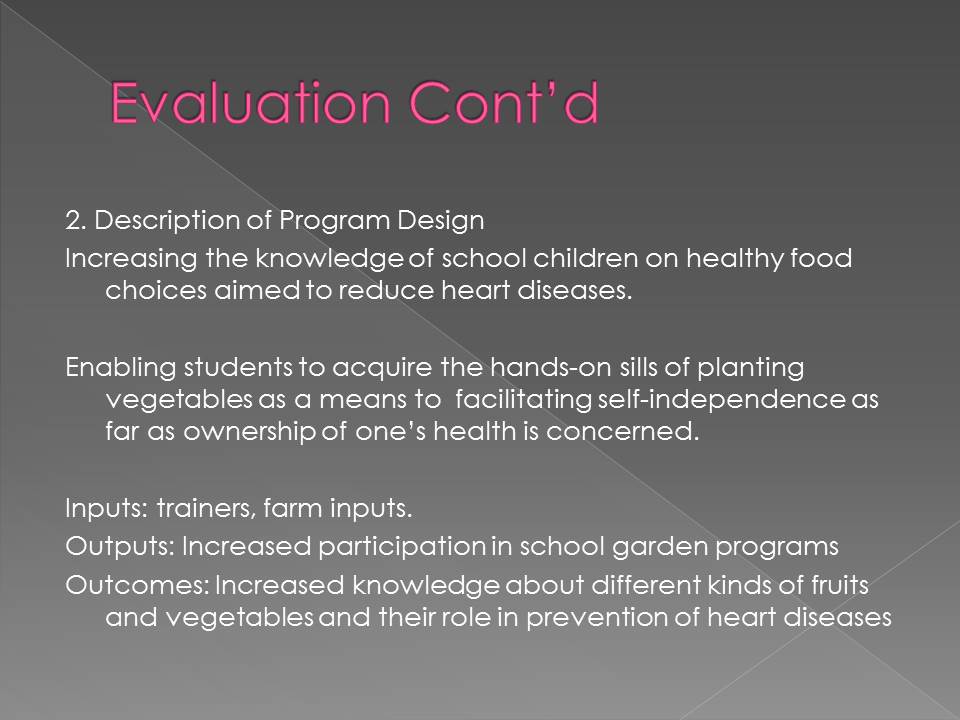
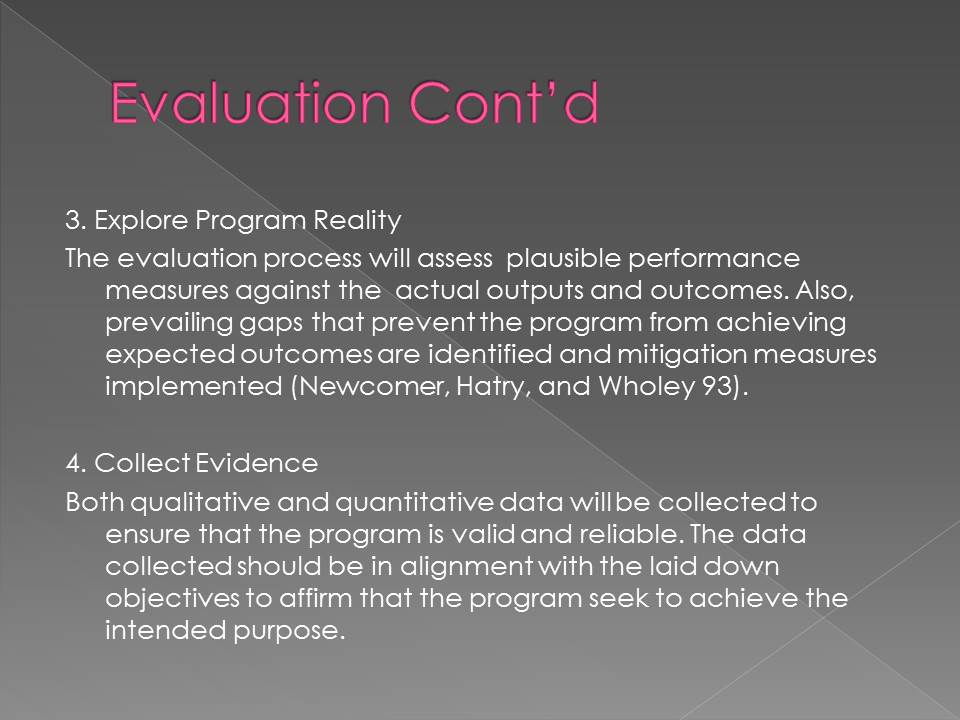
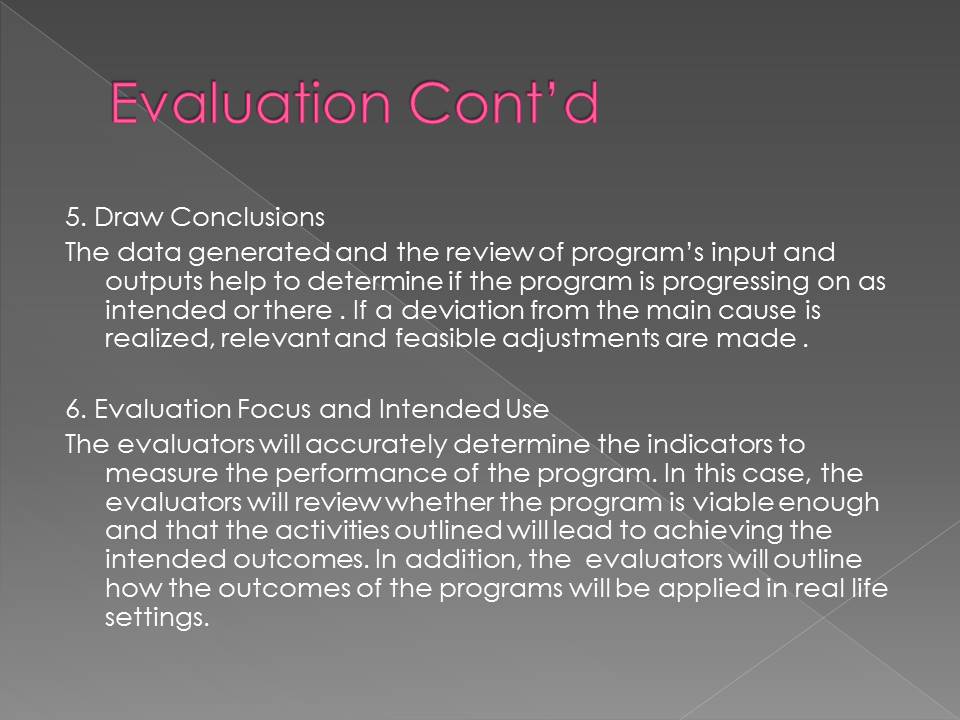
Works Cited
Newcomer, Kathryn, E., Harry P. Hatry, and Joseph S. Wholey. Handbook of Practical Program Evaluation. 4th ed. Hoboken: , Jossey-Bass, 2015.
SUNY Downstate Medical Center. Brooklyn Community Health Reports. Brooklyn: SUNY Downstate Medical Center, 2012.
The Brooklyn Hospital Center. Heart Disease. 2014. Web.
University of Washington. Six Steps of Program Evaluation. 2015. Web.